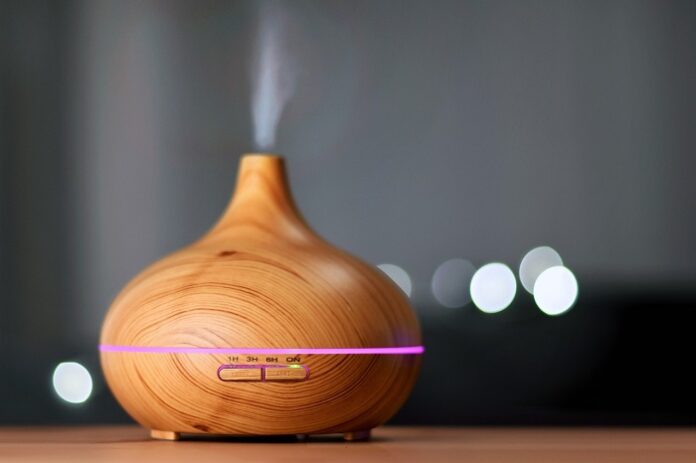Essential oil diffusers have become a staple in many homes due to their ability to create a calming atmosphere, improve air quality, and provide therapeutic benefits. This guide will explore the various types of diffusers, their benefits, and how to use them effectively.
An essential oil diffuser is a device that scatters essential oils into the air, allowing you to experience their aromatic and therapeutic benefits. By using a diffuser essential oil, you can enjoy a variety of scents that can help with relaxation, stress relief, and even improved focus.
Benefits of Using Essential Oil Diffusers
Improved Air Quality
- Essential oils can purify the air by reducing airborne bacteria and allergens.
- Some oils, like eucalyptus and tea tree, have natural antimicrobial properties.
Stress Relief and Relaxation
- Diffusing these oils can create a serene environment, ideal for unwinding after a long day.
Enhanced Sleep Quality
- Lavender and cedarwood oils are particularly effective for promoting better sleep.
- Diffusing these oils before bedtime can help you fall asleep faster and enjoy a deeper, more restful sleep.
Boosted Immunity
- Essential oils such as lemon and peppermint can support the immune system.
- Regular use of these oils in a diffuser can help your body fight off colds and other illnesses.
Types of Essential Oil Diffusers
Ultrasonic Diffusers
- Use ultrasonic waves to create a fine mist of essential oil and water.
- Pros: Quiet operation, humidifies the air, and safe to use.
- Cons: Requires regular cleaning to prevent mold buildup.
Nebulizing Diffusers
- Use pressurized air to disperse essential oils in their purest form.
- Pros: Provides the strongest aroma, no water needed.
- Cons: Can be more expensive and noisy compared to other types.
Evaporative Diffusers
- Use a fan to blow air through a pad or filter saturated with essential oil.
- Pros: Simple to use, portable, and often battery-operated.
- Cons: Less effective in larger spaces and can evaporate oils unevenly.
Heat Diffusers
- Use heat, such as a candle or electric heat, to disperse essential oils.
- Pros: Affordable and easy to use.
- Cons: Heat can alter the therapeutic properties of essential oils.
How to Use Essential Oil Diffusers
Choosing the Right Essential Oils
- Select oils based on desired effects, such as relaxation, energy boost, or improved focus.
- Popular oils include lavender for relaxation, peppermint for focus, and eucalyptus for respiratory support.
Setting Up Your Diffuser
- Ultrasonic Diffusers: Fill the tank with water, add a few drops of essential oil, and turn it on.
- Nebulizing Diffusers: Add essential oil directly to the reservoir and turn on the device.
- Evaporative Diffusers: Saturate the pad or filter with essential oil and activate the fan.
- Heat Diffusers: Place essential oil in the designated area and light the candle or turn on the heat source.
Maintenance and Cleaning
- Regularly clean your diffuser to prevent mold and buildup.
- Use a damp cloth to wipe down the interior and exterior.
- Deep clean with vinegar or a gentle detergent every few weeks.
Safety Tips for Using Essential Oil Diffusers
Proper Usage
- Follow manufacturer instructions for safe use.
- Do not exceed recommended oil quantities to avoid overwhelming scents.
Avoiding Overuse
- Use diffusers intermittently rather than continuously to prevent overexposure to essential oils.
- Limit diffusion sessions to 30-60 minutes at a time.
Safe Storage of Essential Oils
- Store oils in a cool, dark place to maintain their potency.
- Keep oils out of reach of children and pets to prevent accidental ingestion.
Top Essential Oils to Use with Diffusers
Lavender
- Known for its calming and relaxing properties.
- Ideal for reducing stress and promoting better sleep.
Eucalyptus
- Helps clear respiratory passages and improve breathing.
- Excellent for use during cold and flu season.
Peppermint
- Boosts energy and improves focus.
- Effective for relieving headaches and muscle pain.
Tea Tree Oil
- Natural antiseptic and antimicrobial properties.
- Great for purifying the air and supporting the immune system.
Conclusion
Essential oil diffusers offer numerous benefits, from improving air quality to providing therapeutic effects. For more information on essential oil diffusers and to explore a wide range of products, visit The Magic Scent.





